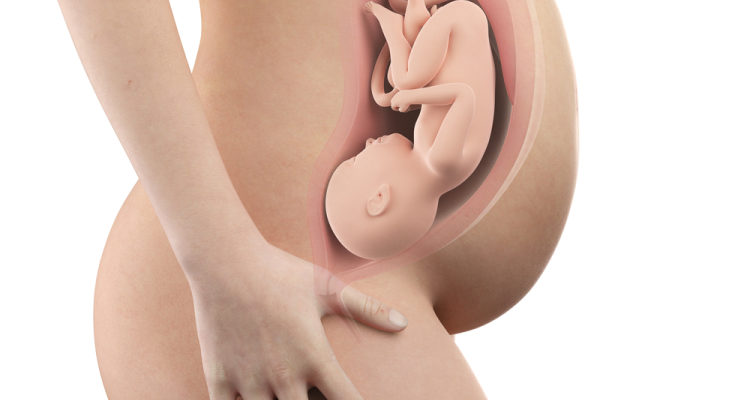
Main content:
39 weeks fetus development
A change in the mother's body at 39 weeks of pregnancy
Doctor's advice about 39 week pregnancy
Maternal and fetal health at 39 weeks
39 weeks fetus development
How does 39 weeks fetus develop?
A baby at 39 weeks old will be the size of a small watermelon, weighing more than 3.3 kg and about 50 cm long from head to heel. Sometimes the umbilical cord can be wrapped around the baby's neck. Generally, this is not a problem, and you may need a cesarean section if labor puts pressure on the umbilical cord. Umbilical cord knot is very uncommon and is only about 1% likely to occur during pregnancy.
At 39 weeks' gestation, most of the wax covering the baby's skin has disappeared along with the hair on the baby's body. The mother's body has provided the baby with antibodies through the placenta and will help the baby's immune system fight infection during the first 6–12 months of life.
A change in the mother's body at 39 weeks of pregnancy
How does the mother's body change?
Braxton Hicks contractions, also known as “false labor,” may become more pronounced by the 39th week of pregnancy. Contractions can be as painful and intense as real contractions but infrequent and gradually increase in frequency like real contractions.
Another sign of labor is a ruptured amniotic fluid sac . This phenomenon can happen at any time. When the amniotic fluid ruptures, some women will experience a high flow of the amniotic fluid and some will feel the amniotic fluid flowing out steadily. Many women don't break their amniotic fluid until they start labor. Others need to ask a doctor to break the amniotic sac. If you think you have ruptured amniotic fluid or are experiencing frequent contractions, contact your doctor.
What are the things you need to pay attention to?
Sometimes it is better to let the baby be born early, especially if the doctor expresses concern about the mother's health and fetal development or if the mother's pregnancy continues for more than two weeks after the date of birth. .
Doctor's advice about 39 week pregnancy
What should mom discuss with the doctor?
Raspberry leaf tea is an herb recommended by the ancients to help women start having labor more easily. However, there are no studies to confirm the safety of any of the herbal treatments used as fertility drugs. Therefore, mothers should not arbitrarily use any herbs without consulting a doctor.
What tests do you need to know?
You may have to see a doctor every week from now until the baby is born. Don't be surprised if your doctor performs one or more pelvic exams. The 39-week fetal test can help the doctor confirm the baby's position inside the mother's uterus: first output, first leg out, or buttock first.
During the gynecological exam, the doctor will also examine the mother's cervix to see how much it has started to soften and how much it has dilated and thinner. This information will be expressed in numbers and percentages.
Maternal and fetal health at 39 weeks
What do you need to know to ensure safety during pregnancy?
1. Lack of sleep
Mom is worried that lack of sleep could harm you. It is understandable to assume that if the mother cannot sleep, the baby cannot sleep. But relax, the baby can sleep even when the mother is awake. No one knows for sure why a baby's sleep is independent of a mother's, though experts do know for sure that sleep is one of the most powerful physiological needs of humans. However, the baby's health will be affected if the mother lacks sleep. Lack of sleep affects a mother's ability to function and makes her fall asleep while driving or fall more easily.
2. Migraine medication
Mother is concerned about the use of migraine medication during pregnancy. While the effects of medications depend on what the mother is taking, most medicines can cause problems. Some old drugs can cause the blood vessels to contract and, hypothetically, this could cause the same tightening contractions down the vessels in the fetus. If a fetus's blood vessels constrict early in pregnancy, it can disrupt bowel development, disrupting arteries leading to the spine and paralyzing the baby.
No one knows for sure whether these drugs actually affect the fetus, but they are still of interest and research.












